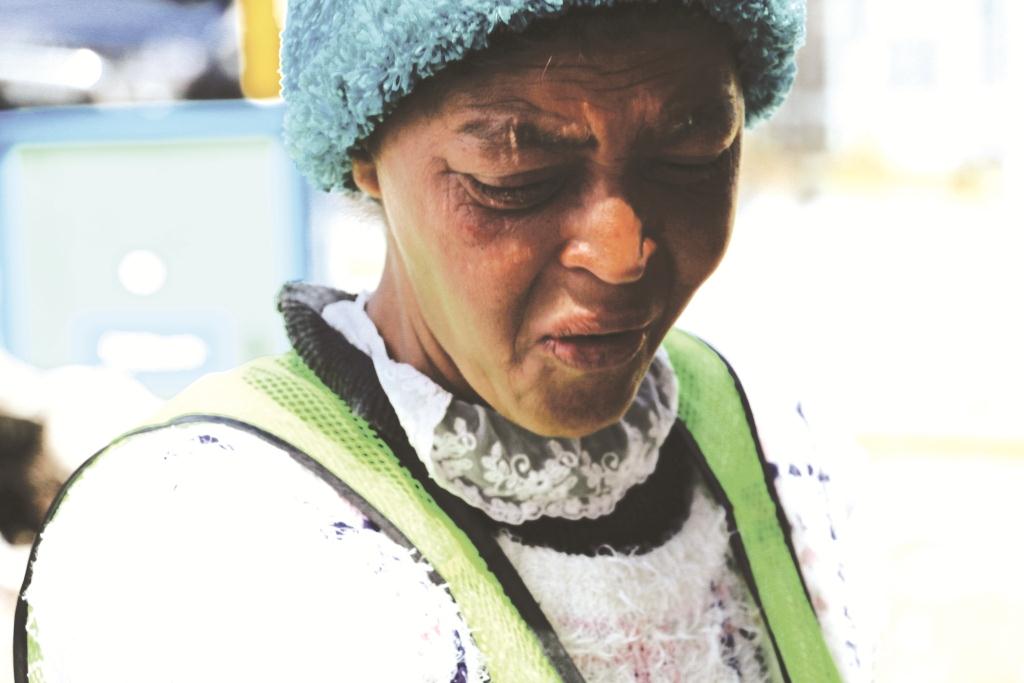Walk around any major city in Africa and you’ll see billboards. They’re hard to miss. Apparently, they also make the perfect outdoor sleeping bags.
“The wind can blow as much as it wants, and it can rain, it’s no problem. I can sleep at night, and in the day I can work,” 31-year-old Zota Atiwa, or ‘Alvis’ as he calls himself, says to FORBES AFRICA in the city center of Cape Town, South Africa.
The man behind the idea of making sleeping bags from billboards is 32-year-old Capetonian Oliver Brain. Today, he is handing out bags, exactly as when he started the company, Street Sleeper, two years ago.
After five years abroad, Brain brought back an engineering degree from Oxford University, experience in strategy consulting, and a determination to find a sustainable business model for a social business.

Today, Street Sleeper has distributed more than 6,000 sleeping bags, made from billboards, to homeless people in the city, says Suzette Little, Councillor and Mayoral Committee Member in Cape Town.
Street Sleeper is not a charity, it is a social business, says Brain.
“We don´t rely on donations. We provide a product, and that enables us to do what we do.”
According to Rachida Justo, Professor of Entrepreneurship Management at IE Business School in Madrid, Street Sleeper is part of a global trend of upcycling, or turning a used product into a different product.
“Everything related to upcycling is something that fits fantastically to our time, given the issues that we have with garbage, plastic and environmental issues. The upcycling is becoming a trend,” she says.
A bag costs R150 ($11), which funds the production and distribution in Cape Town.
“If you want to gift to another place, you pay for the shipment,” says Brain.
Earlier this year, Street Sleeper received some unusual help.
“We got an advertising grant from Google in the amount of $10,000 a month, which is great for connecting to an international audience,” says Brain.
The international connection is going well. Right now, an international shipment of bags is on its way to New York.
“Just in time for the cold east-coast winter in America,” says Brain.
The billboards have all the characteristics perfect for outdoor sleeping bags.
“They are made of PVC, polyvinyl chloride, a sort of plastic. It’s perfect because it is water and windproof, thin enough to act like a fabric, and highly wear resistant, and you can sew it,” says Brain.
So far, Street Sleeper has used approximately 24,000 square meters, or 12 tons, of material that was destined for a landfill.
While Brain started out sewing the bags himself, he now leaves that to the head of production, Oled Borris, a Burundian refugee. Borris learned to sew in Burundi at the age of 12, but after quitting a government job which led to incarceration, he had to flee the country.
“I can relate to the people we give the bags to, because in a way I am homeless too,” he says.
The company is growing and moving to a bigger location. In addition to Borris, Street Sleeper has so far employed eight disadvantaged people.
Down the road from the current workshop, we meet 39-year old Helga, one of only 21% of female homeless people in Cape Town.

Helga is distressed; her bag was stolen while she was asleep.
“Now sometimes I get wet,” she says.
Brain presents her with a new bag and her eyes water.
“I am going to cut this up on the one side, so it can be used as a blanket for me and my husband,” she says.
As Street Sleeper has supplied most of Cape Town’s homeless with sleeping bags, the company is now branching out.
“We’ve been sending bags all over the country,” says Brain. “We’ve realized that in all major cities, Johannesburg, Durban, Pretoria, and even New York, there are a lot of likeminded people, so we want to help them get started.”
New York is not a one-off; in Stockholm, Edinburgh and Dublin, people have received Street Sleeper bags.
“We’re not afraid of letting go of control,” says Brain.
That seems to work, 90% of the bags are picked up by buyers and distributed autonomously, freeing up time for Brain to develop new products.
“We want to branch out and use the same material to make everyday stuff, like beach bags and raincoats,” says Brain.
A smart move, according to Justo, who says that being a social business is not enough to lure customers.
“We’re not there yet, where upcycled products are prioritized. There are still necessary conditions that need to be fulfilled, you need design, convenience and price,” she says.
“You need to take a very honest look at what you do, whether it’s functional or not. We’re very proud of the fact that we’re profitable,” says Brain.
The young entrepreneur has plenty of goals with his business, stretching far beyond the borders of South Africa.
”Every city has these problems, and every city has advertising billboards, so there is a market and supply everywhere.”
